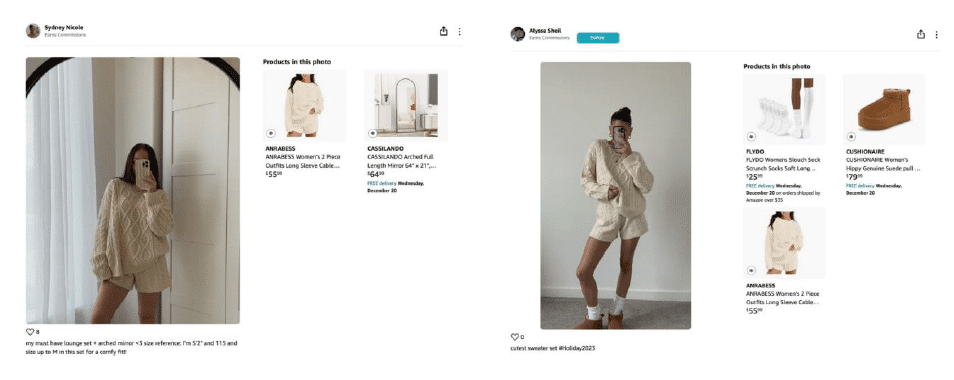During the first half of this year, a number of developments in existing fashion, retail, and tech lawsuits stood out in the crowded landscape of litigation because they indicate larger trends within these spaces and underscore issues worth keeping an eye on during the rest of 2025. Among these are developments in a number of key cases, with one of the most momentous coming in the form of a sweeping injunction awarded to Chanel in the trademark case that it waged against luxury goods reseller What Goes Around Comes Around. At the same time, interesting developments came on the customization front, in cases involving dupes, and in a lawsuit that pits one ultra-fast fashion giant (Shein) against another (Temu).
Against that background, we have compiled a report that highlights some of the many interesting and notable lawsuits and legal developments that we saw in the first half of 2025, and what cases we will be watching during the rest of the year …
Chanel v. The RealReal Urged To Settle Or Move Ahead
A New York federal judge is urging Chanel and The RealReal to settle the case that first pit the parties against one another back in 2018. On May 5, an SDNY judge criticized the nearly two-year discovery stay and warned that he may soon lift it unless strong progress toward settlement is shown.
> For a timeline of the case, you can find that here.
Chanel Lands Injunction in Resale Case
In February, a New York federal judge ruled in favor of Chanel in its trademark suit against luxury reseller What Goes Around Comes Around, imposing $4 million in damages and a permanent injunction to curb misleading use of Chanel’s branding. The judgment restricts WGACA from using Chanel’s trademarks, requires clear disclaimers on Chanel-branded items, and bars unauthorized sales or unverified authenticity claims, marking a major win for Chanel’s control over its brand.
> For a timeline of the case, you can find that here.

Federal Circuit Limits Brand Expansion Via Trademark Doctrine
In March, the Federal Circuit upheld the partial cancellation of Dollar Financial Group’s “MONEY MART” trademarks, finding that the company could not use the “zone of natural expansion” doctrine to claim retroactive rights in pawn services over Brittex Financial, which had prior common law rights. The court clarified that the “zone of natural expansion” doctrine is strictly defensive and cannot be used to proactively register marks in adjacent markets.
THE BOTTOM LINE: As the court makes clear in this case, legacy trademarks do not carry limitless rights – just as they do not future-proof a brand’s expansion into every adjacent market.
“Sad Beige” Lawsuit Over “Copycat” Influencer Aesthetics Comes to a Close

The relatively short-lived lawsuit was intriguing as it was one of the first legal battles to focus on the limits of copyright and trade dress protection in the influencer industry. As the magistrate judge noted in a report last year, “This case appears to be the first of its kind – one in which a social media influencer accuses another influencer of copyright infringement based on the similarities between their posts that promote the same products.”
Nike Faces Amended Securities Fraud Case Over “Failed” DTC Strategy
Nike is embroiled in litigation for allegedly covering up the “ticking timebomb” that was its direct-to-consumer strategy and costing investors “billions” of dollars when the reality of the venture was revealed. According to the first amended consolidated class action complaint that they lodged with a federal court in Oregon, a pair of plaintiffs maintain that Nike, its former CEO John Donahoe, its CFO Matthew Friend and others are on the hook for defrauding Nike shareholders in violation of federal securities laws.
Estée Lauder Must Face Securities Fraud Suit Over Daigou Sales
A federal judge allowed a securities fraud lawsuit against Estée Lauder to proceed, finding that shareholders plausibly alleged the company misled investors by concealing its reliance on gray market daigou sales in China to prop up revenues during the pandemic. In March, the court ruled that Estée Lauder and its executives may have violated securities laws by making misleading statements and omitting material facts about its sales strategy and financial health, especially as those practices unraveled following a government crackdown.
THE BIGGER PICTURE: The decision highlights the legal exposure global brands may face when off-the-record revenue channels – often tolerated in silence – collide with government crackdowns and investor expectations. for its part, Estée lauder has publicly disavowed reliance on daigou practices as far back as 2019. internally, the plaintiffs allege, that position shifted as Estée lauder leaned into daigou to offset pandemic-era sales declines.
The Shoe Surgeon Argues Fair Use, First Sale Doctrine in Nike Lawsuit

The legal battle between Nike and the Shoe Surgeon is escalating. In an amended counterclaim that it lodged with the SDNY in February, the Shoe Surgeon sets out defamation/trade libel and unjust enrichment claims and is seeking a declaration that the trademarks upon which Nike bases its infringement and counterfeiting claims are invalid because the designs “consist entirely of functional, non-distinctive features.”
* Since the H1 Report was released, the parties have reached a settlement agreememt. More about that here.
Suit Targeting Saks, Luxury Brands “No-Poach” Pact Dropped
A closely-watched lawsuit over an “anticompetitive” scheme that allegedly saw Saks Fifth Avenue conspire with luxury brands to control the wages and certain job conditions of luxury retail employees was voluntarily dismissed in its entirety by the plaintiffs. The decision to drop the case brings an end to years of litigation over allegations that Saks and brands like Louis Vuitton, Gucci and Prada engaged in an illegal “no-poaching” scheme.
Court Allows Donald Judd Foundation’s Suit Against Kim K to Proceed

A California federal judge denied motions to dismiss from Kim Kardashian and Clements Design, allowing the Donald Judd Foundation’s claims of trademark and copyright infringement, false endorsement, and unfair competition to proceed. The court found that the Foundation plausibly alleged reputational harm and consumer confusion stemming from Kardashian’s promotion of allegedly unauthorized Judd-style furniture in a SKKN BY KIM video and Clements Design’s sale of the knockoff pieces.
THE BOTTOM LINE: The court’s ruling allows the Judd Foundation’s lawsuit to move forward in its entirety, setting the stage for a striking case over the intersection of intellectual property, design authenticity, and celebrity influence in the marketplace.
Lululemon Beat a “Greenwashing” Lawsuit
Lululemon Athletica beat a lawsuit accusing it of deceiving consumers by way of misleading statements over its commitment to the environment. In an order in February, a federal court in Florida sided with the athleisure giant, holding that the plaintiffs failed to sufficiently allege that they suffered an injury in fact to support their claims for monetary damages and injunctive relief as a result of Lululemon’s alleged practice of making and marketing “a number of [deceptive] environmental claims.”
No Injunction For Temu in Fight Over Shein’s “Anticompetitive” Takedown Scheme
A court sided with Shein in the latest round of an intensifying battle against fellow ultra-fast fashion giant Temu, refusing to grant Temu’s bid for a preliminary injunction to essentially block Shein from submitting “meritless” Digital Millennium Copyright Act (“DMCA”) takedown notices, which Temu has argued are exclusively aimed at stifling competition.
THE BIGGER PICTURE: The lawsuit highlights growing concerns over the use of the DMCA in online retail. while the law was designed to protect copyright holders from online infringement, it has increasingly been criticized for its potential to be exploited for competitive advantage.
This is a short excerpt from TFL’s H1 Biannual Report, which was published exclusively for TFL Pro+ subscribers and delves what is shaping retail in 2025 – from top litigation trends and deals that further consolidated the fashion/luxury segments over the past six months to site-specific data.
> Inquire today about how to sign up for a Pro+ subscription and gain access to all of our content.


